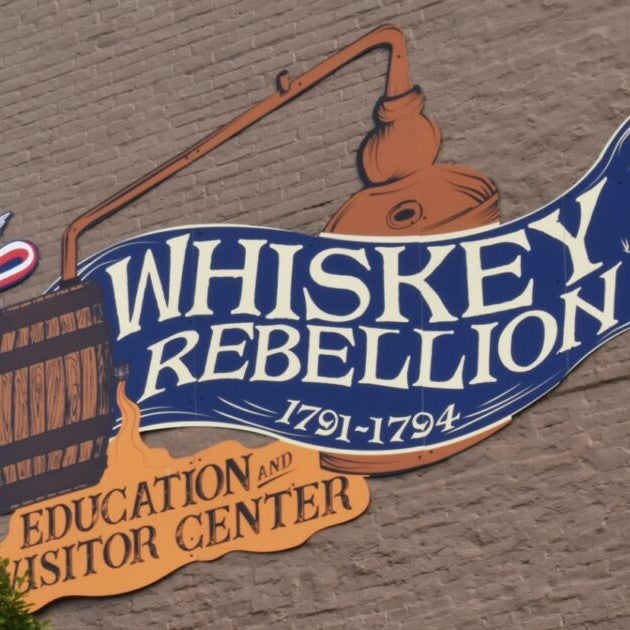Taxation has been an integral part of American history, shaping both the nation's finances and its people's sentiments. In this exploration, we delve into the intriguing history of the first item ever taxed in the United States – whiskey. This journey takes us through the origins of whiskey taxation, the tumultuous events of the Whiskey Rebellion, and the lasting historical repercussions that reverberated through the annals of American history.
The Birth of Taxation: Whiskey's Woe
In 1791, freshly formed and still finding its economic footing, the United States faced a pressing issue: how to fund the debt incurred during the Revolutionary War. Secretary of the Treasury Alexander Hamilton proposed an ambitious plan to address this financial challenge – the imposition of an excise tax on distilled spirits, most notably on whiskey. The tax was seen as a crucial means to generate revenue and stabilize the fledgling nation's financial system.
Distillers, particularly those in the western frontier regions, were among the first to feel the weight of this taxation. Whiskey had become a de facto currency in these areas, and the tax threatened the livelihoods of many small farmers and distillers who relied on the spirit for economic transactions.
The Whiskey Rebellion: A Test of Federal Authority
The imposition of the whiskey tax sparked a wave of discontent, particularly in western Pennsylvania. This discontent reached a boiling point in 1794, culminating in what is now known as the Whiskey Rebellion – a significant challenge to the authority of the newly formed federal government.
Farmers and distillers in the affected regions refused to pay the tax, viewing it as an unfair burden that disproportionately affected their livelihoods. The resistance escalated to the point where armed militias were formed, symbolizing a direct challenge to the federal government's ability to enforce its laws.
President George Washington, determined to assert federal authority and maintain order, called upon state militias to quell the rebellion. The sight of a large federal force marching into the region had a sobering effect, and the rebellion quickly dissipated without significant bloodshed.
Repercussions and Legacy
While the Whiskey Rebellion itself was relatively short-lived, its repercussions extended far beyond the borders of western Pennsylvania. The incident marked a crucial moment in American history, solidifying the federal government's ability to enforce its laws and quell resistance to taxation.
The Whiskey Rebellion demonstrated the delicate balance between federal power and the rights of individual citizens, sparking debates that would echo through the centuries. It also set a precedent for the use of military force to maintain order and uphold the rule of law.
Economic Impact on Distillers
The economic impact of the whiskey tax on distillers, particularly in the western regions, cannot be overstated. Many small farmers and distillers faced financial ruin, as the tax significantly increased the cost of production and disrupted the economic systems that relied on whiskey as a medium of exchange.
In response to the economic challenges posed by the tax, some distillers chose to operate clandestinely, evading tax collectors and engaging in illicit distillation. This further strained relations between the affected regions and the federal government.
Subsequent Changes to the Tax
While the Whiskey Rebellion was a pivotal moment, it did not spell the end of whiskey taxation. In the years that followed, the whiskey tax was repealed and reintroduced multiple times, with rates fluctuating based on economic needs and political considerations.
The tax on whiskey remained a contentious issue, continuing to stoke debates about federal power, states' rights, and the role of taxation in a growing nation. It would take decades and significant changes in the economic and political landscape before the issue of whiskey taxation found a more stable resolution.
Legacy of the Whiskey Rebellion
The Whiskey Rebellion left an indelible mark on the fabric of American history. It showcased the young nation's ability to confront internal challenges and reinforced the federal government's authority to collect taxes. The incident also highlighted the delicate balance between federal powers and individual liberties, a tension that continues to shape debates in American governance.
Development of American Distilling
In the aftermath of the Whiskey Rebellion, the American distilling industry faced both challenges and opportunities. The resilience of distillers in the face of taxation and economic hardship led to innovations in production methods and the emergence of a more diversified spirits landscape.
As the 19th century progressed, the American distilling industry rebounded, experiencing significant growth and contributing to the nation's evolving identity. The demand for whiskey continued to rise, and distillers adapted to changing consumer preferences, technological advancements, and shifts in the economic and regulatory landscape.
Conclusion
The taxation of whiskey in the early years of the United States was not merely a fiscal measure but a catalyst for significant historical events. The Whiskey Rebellion, born out of economic hardship and a resistance to federal taxation, tested the young nation's commitment to the rule of law and shaped the ongoing discourse on the balance between federal authority and individual freedoms.
As the first item ever taxed in the United States, whiskey's journey from rebellion to acceptance mirrors the broader narrative of American history – a narrative characterized by resilience, adaptation, and the perpetual tension between the powers of the federal government and the rights of its citizens.
